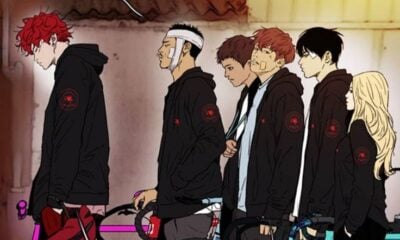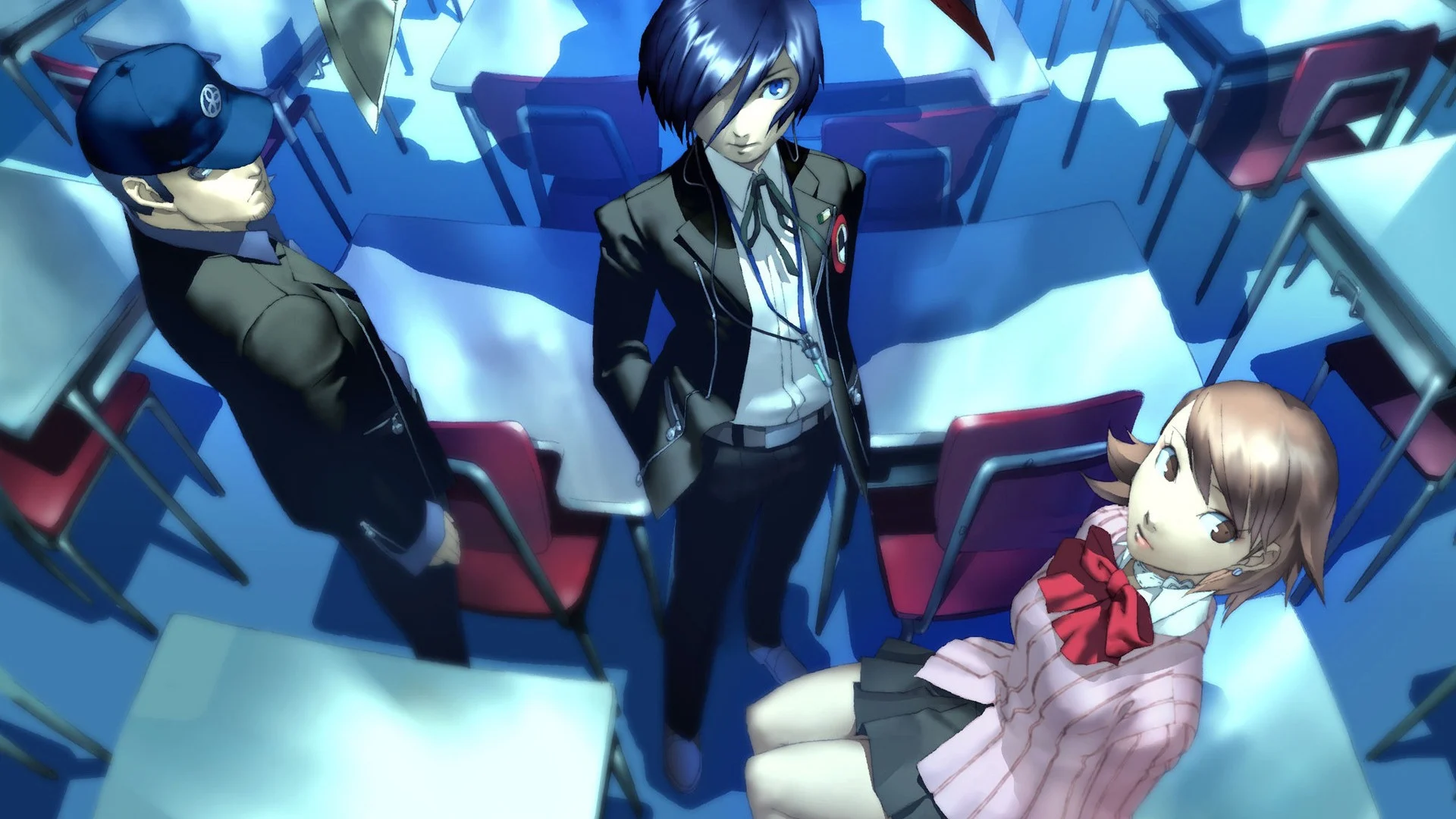Features
Games That Changed Our Lives: ‘Warhammer Online: Age of Reckoning’
Anyone even passingly familiar with MMORPGs will be fully aware of the phenomenon known as game hopping. No single MMO has enough content to satisfy even the most casual player indefinitely. As such, there are regular migrations of player population from game to game during lulls in patch cycles or after the sheen has worn off a new expansion. Many of us have repeatedly moved from game to game on a constant hunt for that sweet drip-feed of XP and cascade of loot. No matter how many games we devour our way through there will always be that one MMO that holds a special place in our hearts and in our back catalogs. For me that game is Warhammer Online: Age of Reckoning.
The dubious honor of being my first MMO goes to Dungeons & Dragons Online, but Warhammer Online is without a doubt the game I look back on with unrepentant fondness. Released in September 2008, Warhammer Online was the last major title from the once venerable Mythic Entertainment. They were responsible for creating Dark Age of Camelot, one of the most well-regarded MMOs in the genre’s history. Its successful blend of faction-based realm versus realm PVP systems and hybrid PVE elements made a perfect foundation for the madcap grim-dark setting of Warhammer Fantasy. In a creative decision that foreshadowed one of the basic aspects of Age of Sigmar, Warhammer Online divided the races of the Old World into two factions: Order and Destruction. Each faction was composed of three of the main races with the Empire, High Elves, and Dwarfs representing the forces of Order, while the Dark Elves, Orcs & Goblins, and Chaos Warriors battled for the armies of Destruction. They may not have been the most interesting possible choices, but they were the most popular races at the time and in development terms also the easiest to implement. Gameplay pitted these two factions against each other across a series of interconnected zones that together constituted a massive battlefront which did a perfect job of representing a relentlessly war-ravaged world.
Each zone was divided between PvE areas and RvR lakes. The PVE areas were crammed full of villages and towns, fortresses and encampments that served as mission hubs for their immediate area. Although the zones may not have differed all too greatly from the usual subset of fantasy biomes, they were intricately designed to offer not only an entertaining questing experience but also a plethora of tactical and strategic options when flagged for PVP. The environmental content in the game was fairly run-of-the-mill with nothing to really distinguish it from similar content in any other MMO before or since. It largely consisted of the standard bevy of fetch and kill quests that will be familiar to even the most inexperienced of MMO gamers. However Mythic did introduce one major innovation in the form of Public Quests. They were location specific, multi-step quests that existed independently of the main narrative. They varied wildly in difficulty and complexity, with some being easy for even a small team whereas others required the equivalent of a raid group in order to be successfully completed. It wasn’t long after that a similar feature appeared in World of Warcraft and for the last two expansions at least has become a bit of a running joke/point of contention in that game’s seething community as to how reliant Blizzard have become on it for open world PVE content.
The dedication to community and friendships that built up between members made sure that win or lose, there was never a dull moment
All the gubbins associated with PVE was there just as much to appeal to gamers more comfortable with continent-spanning questing as it was to show off the richly detailed and often deeply disturbing lore at Games Workshop’s disposal. The real meat of the game was the ongoing conflict between the two featured factions, played out in a variety of glorious PVP/RVR game modes. For those who prefer their carnage all wrapped up in a neat little package, there were instanced matches between balanced teams that saw both sides vying for dominance in pursuit of whatever objective was set for each particular scenario. But far from being isolated one-off games, they were intimately connected to the overall realm war as victories or losses in these matches had a direct effect on your faction’s score when it came to locking down a campaign map. As well as being an absolute blast – providing you weren’t being stomped into the dirt – they were an excellent way to work on perfecting group composition and team strategies that carried over into the war at large. It was the overall conflict between Order and Destruction that was the real meat of the game, with both sides attempting to secure enough of the campaign map in order to unlock access to the faction capitals (Altdorf or The Inevitable City) and the chance at acquiring some tasty endgame loot. This kind of two-tier approach might seem old hat now, but at the time it was a feature that hasn’t really been emulated since, which is an enormous shame seeing as how it resulted in fantastic server communities where players and guilds could become famous or infamous for their performance in battle.
Prior to playing Warhammer Online, I’d never really been much of a PVPer. For me, it was something that only really appealed to no-life try-hards who substituted real world satisfaction for the quick and dirty joy of tea-bagging their fallen enemies. It was only once I joined a PVP-centric guild, ‘Inglorious Basterds’, that I came to realize just how wrong I was. The dedication to community and friendships that built up between members made sure that win or lose, there was never a dull moment and to this day I still game with some of the people I met on the field of digital battle all those long years ago. I was part of a guild that helped organize and control faction-wide efforts to secure zone control by coordinating PVE scores, dungeon completions, scenario victories and open world objective domination. Some of my proudest gaming moments took place in Warhammer Online and I’ve never since questioned the value of PVP content or the motives of people that enjoy it.
For all its flaws, hyperbolic marketing campaign, and regardless of the fact that the game shutdown before it was even completed, Warhammer Online: Age of Reckoning will always be a game that changed my life. Not because it did anything especially innovative or unique, but because it opened my eyes, heart, and mind to an entirely new way of thinking about and playing MMOs. If it hadn’t been for this game, and the people I met playing it, there is no way that I would have continued to be such an avid and enthusiastic online gamer.

-

 Features4 weeks ago
Features4 weeks agoDon’t Watch These 5 Fantasy Anime… Unless You Want to Be Obsessed
-

 Culture4 weeks ago
Culture4 weeks agoMultiplayer Online Gaming Communities Connect Players Across International Borders
-

 Features4 weeks ago
Features4 weeks ago“Even if it’s used a little, it’s fine”: Demon Slayer Star Shrugs Off AI Threat
-

 Features2 weeks ago
Features2 weeks agoBest Cross-Platform Games for PC, PS5, Xbox, and Switch
-

 Game Reviews4 weeks ago
Game Reviews4 weeks agoHow Overcooked! 2 Made Ruining Friendships Fun
-

 Features2 weeks ago
Features2 weeks agoThe End Is Near! Demon Slayer’s Final Arc Trailer Hints at a Battle of Legends
-

 Features3 weeks ago
Features3 weeks ago8 Video Games That Gradually Get Harder
-

 Features2 days ago
Features2 days agoPopular Webtoon Wind Breaker Accused of Plagiarism, Fans Can’t Believe It!
-

 Features3 weeks ago
Features3 weeks agoDon’t Miss This: Tokyo Revengers’ ‘Three Titans’ Arc Is What Fans Have Waited For!
-

 Game Reviews2 weeks ago
Game Reviews2 weeks agoFinal Fantasy VII Rebirth Review: A Worthy Successor?
-

 Game Reviews4 weeks ago
Game Reviews4 weeks agoHow Persona 5 Royal Critiques the Cult of Success
-

 Guides3 weeks ago
Guides3 weeks agoHow to buy games on Steam without a credit card





















